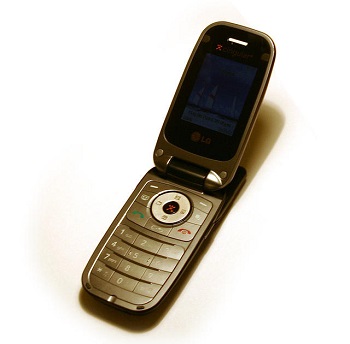In California, if a law should pass, it would mean people would need identification to legally buy a prepaid cellular phone.
A new bill has been put forward by House Representative Jackie Speier (D-San Francisco/San Mateo), that will require that proper identification be presented to retailers before they will be able to legally sell a burner phone – also known as a prepaid cell phone – to a consumer.
The bill has been named the “Closing the Pre-Paid Mobile Device Security Gap Act of 2016”.
The purpose of this burner phone bill is to “close one of the most significant gaps in our ability to track and prevent acts of terror, drug trafficking, and modern-day slavery,” said Speier. These prepaid devices are used by many different people throughout the country without any problem or ill intentions. However, they have also become a central method of communication among those who would do a great deal of harm such as in the case of terrorism, and drug and human trafficking.
If the regulation should become a law, identification would need to be presented when buying a burner phone.
 Retailers selling these prepaid mobile devices or SIM cards would be required to ask a consumer to present the following before a sale can be made:
Retailers selling these prepaid mobile devices or SIM cards would be required to ask a consumer to present the following before a sale can be made:
• The purchaser’s full name
• The full home address of the consumer
• The buyer’s date of birth
The bill also specifies the types of identification that would be considered acceptable for purchasing these mobile devices and SIM cards. T hey include a Federal or State identification card, a W–2 Wage and Tax Statement, a Form 1099 from the Social Security Administration or other government agency or any other type of documentation that would be considered appropriate by the Attorney General.
The retailers selling the burner phone and/or SIM card must record the information that has been presented, along with the information specific to that mobile device. The hope is to be able to reduce the chances for anonymously owning a cell phone that can be used for dubious purposes and to make it more possible to track down the owner of a device that was evidence in a criminal case.
Large banks seek to maintain their position in the mobile commerce market
Five of Switzerland’s largest banks are in talks with retailers and SIX Group, a financial infrastructure provider, concerning the development of a new mobile payments service. Credit Suisse, PostFinance, Raiffeisen, UBS, and ZKB have begun open-ended negotiations with retailers Coop, Migros, and telecommunications company Swisscom seeking to band together and develop a new payment platform that can compete with those coming from Apple, Google, and Samsung. The banks want to ensure that they have a strong position in the mobile commerce space, which is beginning to grow rapidly in Switzerland.
Consumers are becoming more active in mobile shopping, presenting retailers with new opportunities
Notably, UBS, ZKB, SIX Group, and Swisscom all have their own mobile payments services which have been available for some time. These companies believe that the mobile commerce market could be quite lucrative, especially as retailers become more involved in the mobile space. Many consumers are beginning to rely on their smartphones and tablets to shop for and purchase products, and they are beginning to migrate offline, using their devices to make purchases in physical stores.
Retailers may opt to continue using already well established payment services
 Whether or not the banks and retailers decide to work together on the development of a new payment service has yet to be seen. Some retailers have shown modest interest, but they may be more inclined to use already well established services that have become consumer favorites. Banks still want to maintain control of the growing mobile commerce space, however, and may opt to develop their own payment services in order to do this.
Whether or not the banks and retailers decide to work together on the development of a new payment service has yet to be seen. Some retailers have shown modest interest, but they may be more inclined to use already well established services that have become consumer favorites. Banks still want to maintain control of the growing mobile commerce space, however, and may opt to develop their own payment services in order to do this.
Banks want to be able to effective compete with tech companies in the payments space
Apple, Google, and Samsung have all developed their own mobile payments services. These services have been made available for some time, with Apple and Samsung only just beginning to move into the European market. Banks have shown support for these services, but they have also been somewhat resistant to their spread, as they want to retain their position in the burgeoning mobile commerce market without losing revenue to these companies.
 Retailers selling these prepaid mobile devices or SIM cards would be required to ask a consumer to present the following before a sale can be made:
Retailers selling these prepaid mobile devices or SIM cards would be required to ask a consumer to present the following before a sale can be made:
 Whether or not the banks and retailers decide to work together on the development of a new payment service has yet to be seen. Some retailers have shown modest interest, but they may be more inclined to use already well established services that have become consumer favorites. Banks still want to maintain control of the growing mobile commerce space, however, and may opt to develop their own payment services in order to do this.
Whether or not the banks and retailers decide to work together on the development of a new payment service has yet to be seen. Some retailers have shown modest interest, but they may be more inclined to use already well established services that have become consumer favorites. Banks still want to maintain control of the growing mobile commerce space, however, and may opt to develop their own payment services in order to do this.